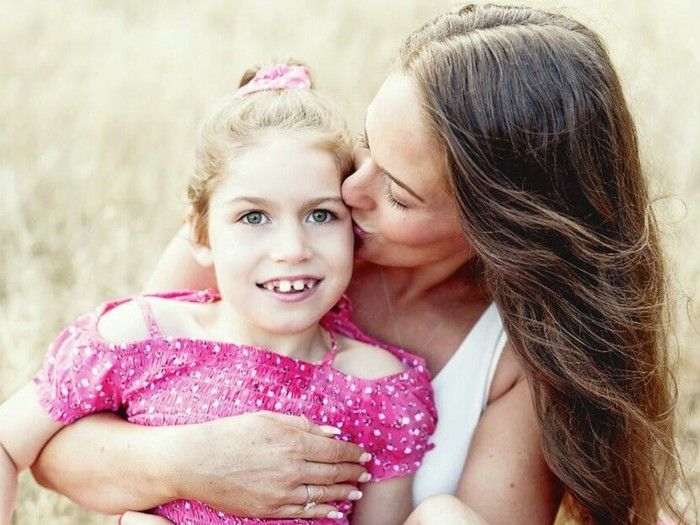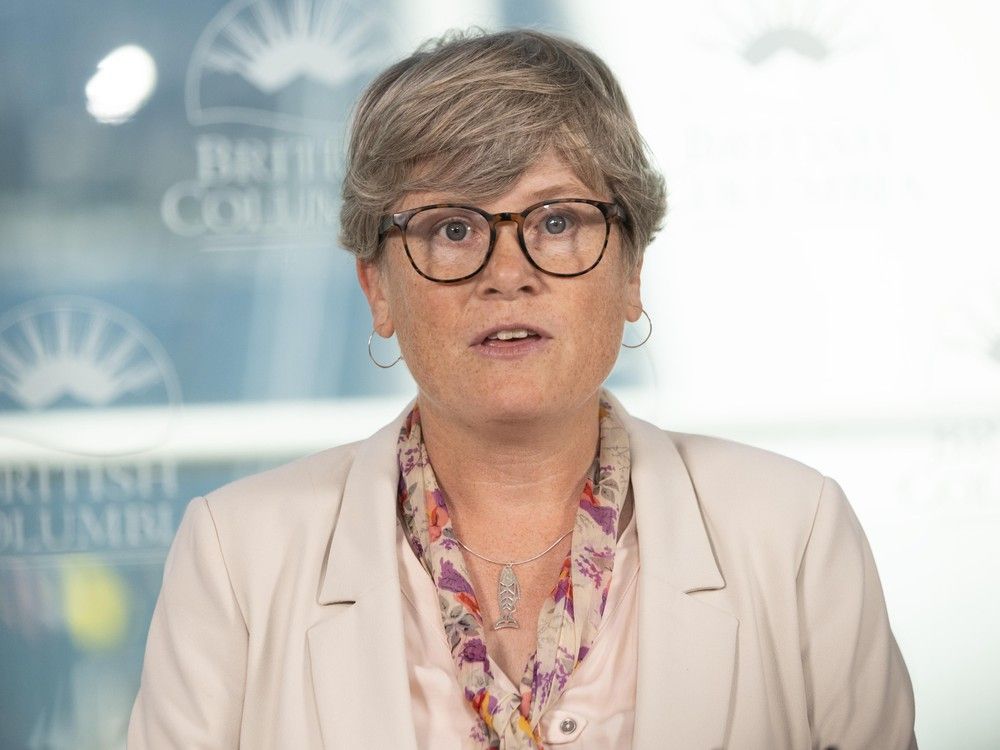
Almost all the U.S. research experts the B.C. government leaned on to make a decision to reinstate a $800,000-a-year drug treatment for a 10-year-girl have, or had, relationships with the pharmaceutical company that manufacturers the drug or foundations that advocate for treatment, a Postmedia examination has found.
The province’s decision went against its own 58-member advisory committee.
Of the 12 physicians and one neuroscientist who signed a letter sent to B.C. Health Minister Josie Osborne calling on treatment to be reinstated, eight of the signatories have declared conflicts in the past five years in papers written for scientific journals or for public presentations because they have consulted for, been paid by, or received grants from California-based BioMarin Pharmaceutical Inc. Another doctor reported being a consultant for BioMarin for four years on a resumé posted online and was paid by BioMarin to be on a medical podcast.
BioMarin manufactures Brineura used to treat Batten disease, the rare incurable neurodegenerative condition that 10-year-old B.C. girl Charleigh Pollock has.
Three other doctors who signed the letter have relationships with foundations that advocate and raise money for Batten disease research.
The Postmedia examination also found that one of the U.S. doctors that signed the letter owns shares in BioMarin, two have been quoted in BioMarin news releases and three former BioMarin employees sit on one of the U.S.-based Batten research foundations.

Experts in bioethics and pharmaceutical policy say the conflict-of-interest revelations raise questions on why the B.C. government overruled its own advisory committee, why it depended on the opinions of U.S. doctors with relationships to BioMarin, and whether it took those conflict-of-interest relationships into consideration.
“I want to suggest that the British Columbia Ministry of Health was handling this case in an ethically justifiable way and has been sidetracked by the lobbying efforts of the Batten disease patient advocacy groups and the patient herself and the doctors whose careers stand to benefit from licensing and prescribing this drug,” said Arthur Schafer, a University of Manitoba professor with a speciality in bioethics and founder of the school’s centre for professional and applied ethics.
In an emailed statement from communications manager Amy Crofts, the B.C. Ministry of Health said they “can confirm that government was aware that some of the U.S. experts have conflicts of interest.”
Officials noted the conflicts were required to be declared when publishing peer-reviewed research on Batten disease, including the initial clinical trials on Brineura that were funded by BioMarin and used by Canada’s Drug Agency in 2019 to establish the discontinuation criteria.
Health officials did not respond to questions on whether the government considered the conflicts of interest in their assessment and how it weighed these conflicts against the advice of its own adviser group.
Osborne was not made available for an interview.
Initially, the B.C. government backed its advisory committee’s decision to halt treatment to the 10-year-old girl after six years.

The advisory committee said they recommended stopping treatment because discontinuation criteria was met, and beyond which the benefits versus risks of the drug were not believed to be favourable. The U.S. doctors sent a letter — under a Batten disease support and research association designation — outlining their concerns and calling for the girl’s treatment to continue.
Osborne, the health minister, said the province reversed its decision because of the letter.
“The letter I received today from the Batten disease experts confirms there is a significant disagreement between health experts on Brineura, and it is not acceptable that Charleigh and her family suffer as a result of that disagreement about the use of Brineura for Batten disease,” Osborne said last month.
Following the reversal, 10 members of the advisory committee quit and B.C. Premier David Eby has now called for a review and overhaul of the decision process.
Schafer, who has been studying biomedical conflicts of interest for more than 20 years, said he was not surprised to learn the U.S. letter signatories had relationships with the drug company that produced the drug and that they recommended its continued use.
He said he believes the B.C. government would have been fully aware of the conflicts of interests held by the U.S. doctors who signed the letter, as these relationships are “standard procedure.”
Schafer, who formerly worked as an ethics consultant for the Winnipeg Regional Health Authority, said he believes the B.C. government capitulated and caved to pressure, as he believes most Canadian provincial governments would.
“And I think the resulting decision is not morally justifiable,” he said.
Schafer noted the effectiveness of these expensive rare-disease drugs is often unproven, underscoring the importance for governments to have independent expert advice when making difficult decisions in the face of emotion, public pressure and scarce resources. Other experts have made similar observations.
Pierre-Marie David, a professor in the faculty of pharmacy at the University of Montreal who has been researching access to exceptional drugs, said a key to making these decisions is building trust in provincial health agencies, particularly given there is a large pipeline of these expensive drugs with uncertain effectiveness for rare diseases, which means more difficult decisions and increasing costs.
“If we have trust in the decision of a public agency, we should stick to it,” said David.
He said he did not believe provinces and Canada should be turning for advice to the U.S. health system, whether the doctors there are right or wrong, or have a conflict of interest or not, because they do not have a public health care system like Canada’s.
“They have no lessons to tell us here,” said David.
The relationships of some of the U.S. letter signatories to BioMarin are laid out in conflict-of-interest and disclosure statements in scientific journals.
For example, a 2024 editorial Dr. Raymond Wang wrote for the journal Neurology includes a “disclosure” that says he receives research funding from, has received speaking honorariums from, and owns equity in BioMarin Pharmaceuticals, which manufacturers Brineura.
Wang is director of the Batten Disease Center for Excellence at Children’s Hospital of Orange County in California.
A 2024 Lancet Neurology journal article co-written by Dr. Emily de los Reyes includes a conflict-of-interest statement that notes she received “salary support” from BioMarin for herself and her research personnel. She also received honorariums and travel support.
De los Reyes is the chair of the Batten Disease Centers of Excellence program and director of the Batten Disease Center of Excellence at Nationwide Children’s Hospital in Columbus, Ohio.
A 2022 Journal of Inherited Metabolic Disease paper co-authored by Dr. Erika Augustine, who is the director of the Batten Disease Centre of Excellence at the Kennedy Krieger Institute in Baltimore, notes in a conflict-of-interest statement that she received compensation as a consultant for BioMarin and other pharmaceutical companies.
Postmedia reached out by email to these doctors to ask questions about the conflict-of-interest disclosures, but did not receive a reply.
In a written response to Postmedia questions, Amy Fenton Parker, president of the Batten Disease Support and Research Association, said questions of funding from drug companies should be posed to each research and clinical treatment group.
“In all scientific presentations, both groups are required to make disclosures about any funding or conflicts of interest,” noted Parker.
She noted the centres of excellence do not receive funding from industry partners through the association.
There are a number of Batten disease organizations that co-operate and partner to advocate for, and help fund, research for treatments.
The Batten Disease Support and Research Association manages the centres of excellence program, under which the U.S. doctors who signed the letter operate.
That association has three former BioMarin employees on its board of directors , including vice-chair Barbara Wuebbels.
Another group, the Beyond Batten Disease Foundation, has raised $35 million to help fund research to find treatments and has partnered with the Batten Disease Support and Research Association.
The research association has several chapters around the world, including in Canada.
The 10-year-old B.C. girl’s mother, Jori Fales, is on the board of directors of the Canadian chapter, according to the latest filing of the group for registered charities in Canada.